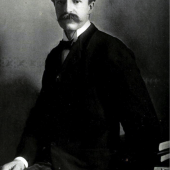
Some scholars of leadership for sustainability argue that more research needs to be done on the ‘who’ of leaders, the core drivers of the ‘what’ and ‘how’ of their decisions and actions. This paper looks at a leading US figure in sustainability, Gifford Pinchot, who led the establishment of the US Forest Service, and who devoted much of his career to conserving the natural world for the good of his fellow citizens. It describes the formation of the ‘who’ of Pinchot as an adult leader through a focus on his early learning environment in order to point to some essential and timeless principles for the education of leaders of sustainability.
Continue Reading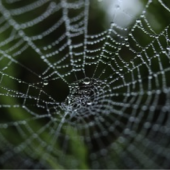
In our state of acute global crisis, we urgently need new leaders. In this short essay, I would like to sketch out my vision of such a new kind of leadership.
Continue Reading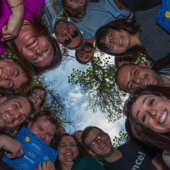
Abstract: In order to effectively address global sustainability challenges, a wide spectrum of society must be engaged. Universities generate knowledge, enhance understanding of sustainability problems and identify potential pathways to solutions. However, the information they produce often does not reach the public sector. Primary and secondary schools contain expert teachers and science communicators, but they are often limited by educational standards and other teaching duties. On the other hand, museums, such as science and natural history museums, are particularly skilled at translating scientific information so that it engages and excites the general public without the limiting expectations of school systems. Thus, partnerships between museums and universities offer great potential for disseminating sustainability knowledge and solutions on a global scale. However, given the complexity of sustainability problems, partnerships between universities and museums require a deep level of collaboration beyond the scope of information or resource exchange. In this article, we explore our experiences collaborating with museums, reflecting on challenges and, ultimately, identifying four main focal areas to successful, transformational collaborations. Though we focus on museum partnerships from the university perspective, we contend that any institution can apply these four steps to make progress on wicked problems that require immediate action.
Continue Reading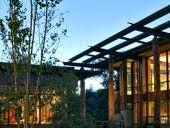
Medrick JSE Nov 2015 Hope Issue PDF Abstract: This article examines the purpose, design, process, and operations of Prescott College’s PhD Program in Sustainability Education. It describes how students come into the program, participate in foundational course work, operate within a cohort framework, and provide feedback and support for each person’s […]
Continue Reading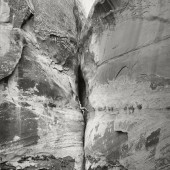
This opinion/editorial presents the belief that love is present in all human lives as an emotional experience and may be present in all human lives as an intellectual idea as well. It considers possible actualities that lie behind some common thoughts (clichés) about love. The author presents the idea that even though love is central to our lives, the word love, if not the concept of love, is avoided in academic discourse. The author explores some of the scholarly, theoretical, and philosophical writing about love, noting that it is often named something other than love (compassion, well-being, altruism, etc.). The question and invitation are presented to consider what might be possible if love were intentionally and specifically identified as a methodology, pedagogical practice, and value in leadership, activism, and education.
Continue ReadingIn response to the hitherto unchallenged assumptions supporting a globalized economy, the Leadership for Sustainability Education (LSE) program, formerly Leadership in Ecology, Culture, and Learning, was developed as part of an emerging sustainability movement. This article highlights the favorable conditions that provided the context for the evolution of the LSE program, including organizational policies and practices at Portland State University, and a commitment to community-university partnerships that conveyed the University’s motto, “Let Knowledge Serve the City.” We discuss the potential that higher education has to transform practices and ways of thinking necessary for ecological sustainability and social justice. Following this overview, we outline the main elements of the LSE Master’s degree program, including the four key learning areas: self-understanding and commitment, systemic view of the world, bio-cultural relationships, and tools for sustainable change. Additionally, we describe the types of learning experiences and assessment strategies employed throughout the program. We conclude by sharing the key authors and thinkers who influence the program and coursework.
Continue Reading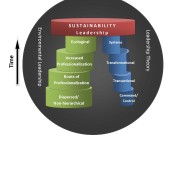
Colleges and universities are rushing to respond to an increasingly urgent challenge: developing the next generation of sustainability leaders. Although diverse in program design, teaching methodologies, assumptions, and skills taught, sustainability leadership programs, with experiential education as a core methodology, are rapidly emerging. This study – the first comprehensive attempt to analyze this phenomenon –explores three primary questions via interviews with 20 program directors and analysis of 50 programs’ materials: 1) What program designs and teaching strategies are sustainability leadership programs utilizing? 2) What principles and assumptions underlie these training methodologies? 3) What are the key requisite skills for sustainability leadership development? The analysis reveals that programs currently focus on network-building, systems thinking and project-based learning. Program leaders define sustainability broadly, with an emphasis on social justice. They focus on communication and engagement in defining leadership. Challenges in program design include the tradeoffs of breadth versus depth as well as tradeoffs in training in specific skills versus analytical methods. Programs tend to either focus on leadership with sustainability as one application or sustainability education with leadership as a subtext. Consistent across programs is the emphasis on peer-to-peer learning. Best practices for program design include employing experiential learning, integrating disciplines, moving beyond sustainability knowledge, building community, expanding the boundaries of transformational leadership, change agent training, and acquiring specific skills. While the growth of sustainability leadership programs appears slated to continue in the near-term, the lack of effective assessment limits the ability to demonstrate success and may be a barrier to future growth.
Continue Reading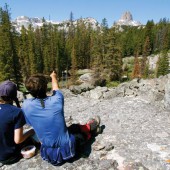
Minimum impact camping is a focus of most wilderness programs, but what example are we setting for our students before we get to the backcountry? In the past eight years NOLS has increased its focus on leading and teaching front-country sustainability by example, in addition to Leave No Trace practices taught in wilderness classrooms. This article explores some of the strategies, challenges, and successes in bringing sustainability to NOLS’ front-country operations.
Continue Reading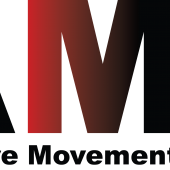
This article explores how to create a sustainable adventure movement and increase the use of Outdoor Adventure Education as an innovative educational tool in schools, communities and businesses. Taking a whole system approach and applying leading social movement and diffusion theories, the Adventure Movement Project seeks to develop a framework for integrating Outdoor Adventure Education into whole communities to inspire servant leadership, achieve sustainability, and drive innovation. Original research presented shares why Outdoor Adventure Education matters and how a socially just and sustainable planet can thrive with Outdoor Adventure Education acting as a highly effective catalyst to drive social, economic, educational, and environmental change.
Continue Reading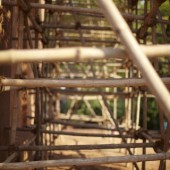
Nichols and Adams show how central design must be to sustainability by showing the numerous ways and multiple disciplinary perspectives that allow sustainability to be incorporated into the design curriculum. The program described goes far beyond a nod to “green building” technologies and shows how design is at the root of the ecological, economic, social and transformational aspects of sustainability.
Continue ReadingThe author constructs a theory of sustainable leadership in contrast to exploitive leadership and argues that all leadership in the modern world falls somewhere on a continuum between these two extremes. The definitions developed for sustainable and exploitive leadership hinge upon the purposes toward which leadership is applied. The concept of sustainable leadership is further […]
Continue ReadingSince its founding, the Center for Ecoliteracy, where Zenobia Barlow is executive director and Michael Stone is senior editor, has supported and advanced education for sustainable living in K–12 schools. One of our particular concerns has been leadership and systemic institutional change. We have sought to understand both how schools can themselves change and how […]
Continue Reading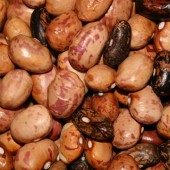
With elegant simplicity, Rick Medrick makes the case for the importance of transformational change as part of our education process to bring about sustainability. He brings forth the need for creating learning environments where real, transformational change, can happen. And he invokes the role of the “servant-leader” in establishing those environments as part of an organic and evolutionary change process that we can help to generate.
Con una sencillez elegante, Rick Medrick hace el caso por la importancia del cambio transformacional como parte de nuestro proceso educativo para llegar a la sustentabilidad. Trae al frente la necesidad de crear ambientes de aprendizaje a donde el cambio verdadero transformacional puede ocurrir. Y el invoca el papel del “líder-sirviente” en establecer estos ambientes como parte de un proceso de cambio orgánico y evolutivo que nosotros podemos ayudar en generar.
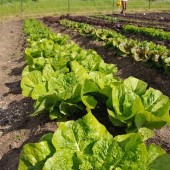
In an insightfully pragmatic way, John Gookin shows us how we can incorporate sustainability concepts into an innovative curriculum like that of NOLS without forcing the issue. He espouses the NOLS “organic” approach to curriculum design, where each taught element serves a real purpose, while finding great instances for including sustainability theory and practice.
Continue Reading